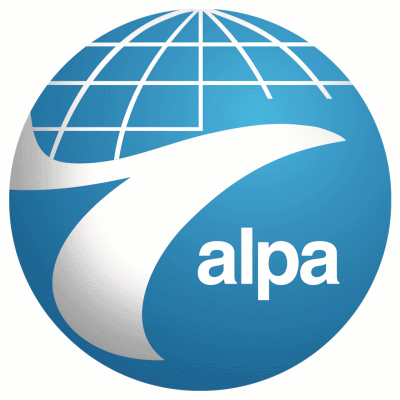Thu, Dec 19, 2013
Foreign Company Seeks To Exploit Legal And Regulatory Loopholes To Evade Its National Laws And Gain Economic Advantage Over U.S. Airlines
The Air Line Pilots Association, Int’l (ALPA) today called for the U.S. Department of Transportation (DOT) to immediately reject Norwegian Air International’s (NAI) foreign air carrier permit application because the company appears to be attempting to evade its national laws and regulations to compete unfairly against U.S. airlines and their employees. The call came in an answer that ALPA filed in response to NAI’s application.

“Norwegian Air International was clearly designed to attempt to dodge laws and regulations, starting a race to the bottom on labor and working conditions,” said Capt. Lee Moak, ALPA’s president. “If successful, the company would gain a serious and unfair economic advantage over U.S. airlines in the competition for the business of international passengers flying to and from the United States. This exploitation of the laws intended to prevent labor law shopping cannot be allowed to stand.”
While Norwegian citizens control NAI, which is a subsidiary of Norwegian Air Shuttle (NAS), the company uses aircraft registered in Ireland and has applied for an air operator certificate from that country. It appears that its flight crews will work under individual employment contracts that are governed by Singapore law and that have wages and working conditions substantially inferior to those of NAS’s Norway-based pilots.
“If NAS is permitted to pick and choose the countries in which it establishes its subsidiaries and employs its flight crews, U.S. carriers will be put at a severe competitive disadvantage because the United States has one set of laws and regulations for all of its airlines,” said Capt. Moak. “The U.S.-EU air services agreement was never intended to allow this type of scheme, which games the system for competitive economic advantages.”
ALPA maintains that the NAI scheme raises the specter of the “flag of convenience” business practice that undermined the U.S. maritime industry by allowing a vessel to be registered in a country different from its ownership and apply the country of registry’s laws to its operations. The practice precipitated the decline of the industry and the loss of tens of thousands of U.S. maritime jobs as companies flew the flag of countries with the weakest labor and tax laws and regulations.

Moak noted a quote by the AFL-CIO’s Transportation Trades Department in an opinion piece published today by Aviation Daily: “We must reject business models premised on scouring the globe for cheap labor no matter the consequences, and not pretend this is somehow acceptable competitive behavior. The NAI scheme must be immediately and unequivocally rejected,” said Moak. “The DOT must not permit U.S. airlines and their employees to face an unfair competitive disadvantage from this runaway shop and swiftly dismiss NAI’s air carrier permit application.”
Moak also called on the Irish government to reject NAI’s attempt to register the aircraft in Ireland. “Ireland should not allow itself to be complicit in NAI’s avoidance scheme,” he concluded.
More News
NonApproach Control Tower Authorizes aircraft to land or takeoff at the airport controlled by the tower or to transit the Class D airspace. The primary function of a nonapproach co>[...]
“This shutdown inflicted real damage. Beyond disrupting operations and adding risk into the aviation system… it hindered essential career growth opportunities and stal>[...]
Aero Linx: The Mooney Mite Site Dedicated to the Mooney M-18 Mite, "The Most Personal Airplane," and to supporting Mite owners everywhere. The Mooney M-18 Mite is a single-place, l>[...]
Pilot’s Improper Installation Of The Control Stick Pushrod Assemblies, Which Resulted In Separation Of The Left Pushrod And A Total Loss Of Roll Control Analysis: While retur>[...]
We're Everywhere... Thanks To You! Even with the vast resources and incredibly far-reaching scope of the Aero-News Network, every now and then a story that should be reported on sl>[...]
 ANN's Daily Aero-Term (11.16.25): NonApproach Control Tower
ANN's Daily Aero-Term (11.16.25): NonApproach Control Tower Aero-News: Quote of the Day (11.16.25)
Aero-News: Quote of the Day (11.16.25) ANN's Daily Aero-Linx (11.16.25)
ANN's Daily Aero-Linx (11.16.25) NTSB Final Report: Vans Aircraft Inc RV-12
NTSB Final Report: Vans Aircraft Inc RV-12 ANN FAQ: How Do I Become A News Spy?
ANN FAQ: How Do I Become A News Spy?




